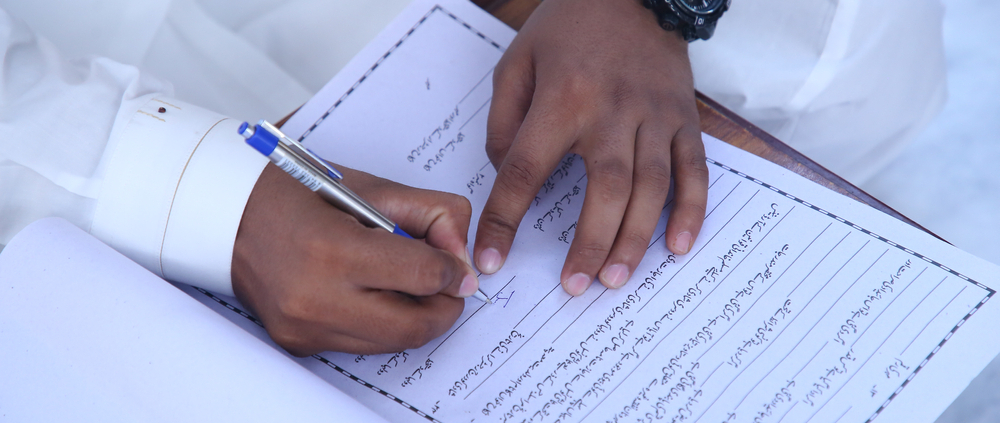Is My Nikah Valid If the Witnesses Were Present Virtually?
Hanafi Fiqh
Answered by Shaykh Abdul-Rahim Reasat
Question
I married my first cousin, Hanafi (paternal uncle’s son), in the following manner. We sat together at a place and made a video call to his younger brother and one of my other cousins, who, although the same age as my husband, is an uncle in relation. Now, they both were made aware of the situation beforehand that they would witness my nikah.
Also, they both know me well, recognize my voice, and can attest to hearing the offer and acceptance of the proposal. Now, my husband read the khutbah and nikah and offer. I accepted, and the witnesses were asked if they had heard it. Similarly, my husband accepted, and it was confirmed if the witnesses heard it.
Both the witnesses had eyes on us and were aware that my husband and I were in the same place. I had confirmed this manner of nikah online as well before attempting it. It was from another similar nikah. After the nikah and consummation, I informed my father and other family members about the nikah within a week or two. I asked them to keep silent about it for a little while until we could convince my husband’s parents first. So they are not aware of it. I even got my mehr.
Now, I am being told that since my witnesses were physically not present in the same room, even though they heard everything and could testify, my nikah is invalid. Please explain this matter.
Answer
In the Name of Allah, Most Compassionate, Most Merciful
Witnesses In a Marriage
Do not worry; the nikahs were valid. If it is causing issues with people, you can do it again to quell their concerns.
The legal manuals condition the presence of two witnesses who hear the offer and acceptance, who are aware it is a marriage. Their physical presence is unnecessary as long as they hear and witness the contract. [Marghinani, al-Hidaya]
The Messenger of Allah (Allah bless him and give him peace) said, “There is no nikah except with a guardian (wali) and two uptight witnesses. [Ahmad, Bayhaqi] The stipulation of the guardian in the hadith is a point upon which the jurists have differed from the time of the companions. However, the stipulation of witnesses is generally accepted.
Also, the books of law are the distilled understanding of the Quran and Sunna taken from generations of qualified scholars.
The Problem With Secret Marriages
Secret marriages are not an ideal situation. Firstly, they can alienate one or both families, leading to broken family ties. This is severely prohibited in Islam.
Sometimes, a couple will decide to marry secretly, and it later turns out that he is not suitable for her according to the standards the Shari’a recognizes. Her parents disapprove, and it turns out that the marriage was not valid in the first place.
There is also the case where he could be wronging her, and she is stuck with no way out. The proper marriage process is there to facilitate matters in society for everyone. It’s better to have everyone involved for the greater good.
You don’t have anything to worry about regarding the validity of the marriage. You should, however, work on the family situation. May Allah facilitate all matters for you.
[Shaykh] Abdul-Rahim Reasat
Checked and Approved by Shaykh Faraz Rabbani
Shaykh Abdul-Rahim Reasat began his studies in Arabic Grammar and Morphology in 2005. After graduating with a degree in English and History he moved to Damascus in 2007 where, for 18 months, he studied with many erudite scholars. In late 2008 he moved to Amman, Jordan, where he continued his studies for the next six years in Sacred Law (fiqh), legal theory (Usul al-fiqh), theology, hadith methodology, hadith commentary, and Logic. He was also given licenses of mastery in the science of Quranic recital and he was able to study an extensive curriculum of Quranic sciences, tafsir, Arabic grammar, and Arabic eloquence.
